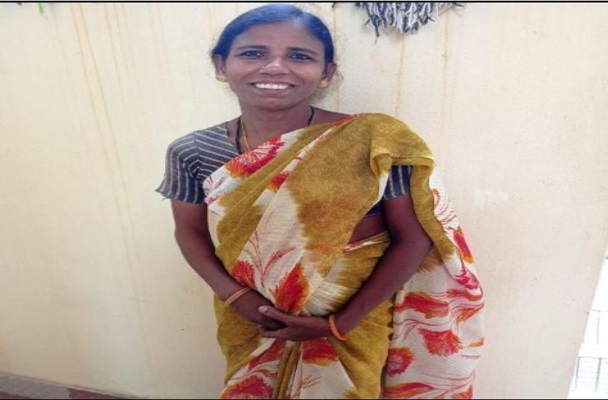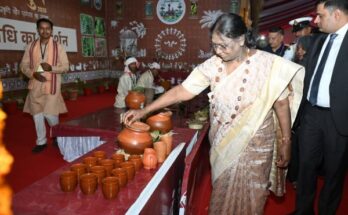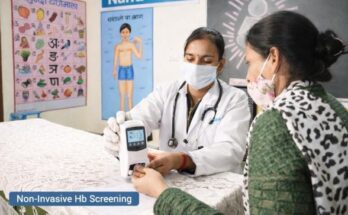
Team News Riveting
Narsapur (Andhra Pradesh), September 25
In the heart of Narsapur town, Andhra Pradesh, lies Ponnapalli ward, a community once defined by vulnerability and the prevalence of open defecation.
A large slum population with limited access to basic sanitation services had accepted open defecation as the norm. Yet, amidst this environment, one woman, Satyanarayanamma, refused to accept the status quo. A fisherwoman and mother of two, Satyanarayanamma, who is differently abled due to polio, became a force of change in her community. Her personal experience with the illness made her deeply aware of the importance of sanitation, driving her to make a difference not only for her family but for the entire ward.
Satyanarayanamma’s journey started when she joined the Gender Forum, a local NGO dedicated to raising awareness about sanitation and hygiene among women. Alongside other Forum members, she led discussions on menstrual hygiene, toilet usage, and hand washing, working tirelessly to engage her neighbours in the battle for a cleaner, healthier environment. Initially, it was very difficult to convince the
local community to adopt safe sanitation practices and maintain personal hygiene.
However, with local women like Satyanarayanamma leading the charge, the effort slowly began to gain
momentum. Their sanitation audits and discussions on faecal sludge management and gender-friendly services helped address specific concerns, empowering the community to take charge Thanks to their tireless work, Ponnapalli ward achieved Open Defecation Free (ODF) status, a milestone for the town and an enduring testament to the power of grassroots mobilization.
This transformation coincides with the national Swabhav Swachhata Sanskaar Swachhata
4S) campaign, launched to mark the 10th anniversary of the Swachh Bharat Mission. Running from September 17 to October 2, 2024, the campaign highlights India’s ongoing efforts to foster a culture of cleanliness and sanitation, echoing the goals of the annual Swachhata Hi Seva movement. As the country builds up to Swachh Bharat Diwas on Mahatma Gandhi’s birth anniversary, the stories of communities like Ponnapalli stand as powerful symbols of what can be achieved when citizens unite for a common cause. The 4S campaign is not just about maintaining cleanliness but instilling a sense of responsibility and pride in sanitation practices, much like what Satyanarayanamma and her fellow women achieved in their ward.
The broader impact of the Swachh Bharat Mission is evident in its tiered achievements. As of September 24, 2024, 4,576 cities across India are Open Defecation Free (ODF), meaning they have successfully eliminated the practice of open defecation. Additionally, 3,913 cities have achieved ODF+ status, indicating not only the elimination of open defecation but also sustained toilet usage and proper maintenance of public and community toilets. Furthermore, 1,429 cities have reached ODF++ status, showcasing advanced management of faecal sludge and septage, ensuring efficient waste treatment.
In rural areas, the mission has also made significant strides, with 5,54,150 villages achieving ODF Plus status, which indicates improved sanitation facilities and practices. Among these, 3,00,368 villages have been recognized as ODF Plus Model Villages, setting benchmarks for others. Additionally, 1,30,238 villages have been verified as ODF Plus Model Verified Villages, ensuring that they meet the stringent criteria for sustainable sanitation practices.
These numbers are more than just statistics; they represent lives transformed, healthier communities, and the collective determination of individuals like Satyanarayanamma. Her work in Ponnapalli ward mirrors the mission’s vision of a cleaner, healthier India, a vision that continues to inspire change across the nation. As the Swachh Bharat Mission enters its second decade, the success of the 4S campaign promises to build on these achievements, ensuring that communities like Ponnapalli are not just ODF but also equipped with the knowledge and resources to maintain their cleanliness and hygiene for generations to come.
Behind these impressive statistics are stories like Satyanarayanamma’s—individual efforts that ignite collective action. The Swachh Bharat Mission didn’t just build toilets; it reshaped mindsets. Satyanarayanamma’s journey shows that true transformation goes beyond infrastructure—it’s about changing how people perceive and practice sanitation. Her story is a reminder that sustainable change happens when communities take ownership, fostering not only cleanliness but also a lasting sense of responsibility for their health and environment.



